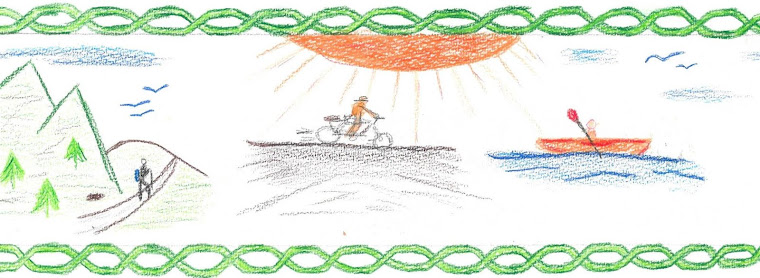Lectionary Ruminations 2.5 is a further revision and refinement
of my Lectionary Ruminations and Lectionary
Ruminations 2.0. Focusing on The Revised Common Lectionary Readings
for the upcoming Sunday from New Revised Standard Version (NRSV) of the Bible, Lectionary Ruminations 2.5 draws on over thirty years of pastoral
experience. Believing that the questions we ask are often more important
than any answers we find, without over reliance on commentaries, I intend with
sometimes pointed and sometimes snarky comments and Socratic like questions, to
encourage reflection and rumination for readers preparing to lead a Bible
study, draft liturgy, preach, or hear the Word. Reader comments are invited and
encouraged.
JEREMIAH 31:27-34
31:27 Are these days still to come or have they
been fulfilled? What does it mean to sow with the seed of humans and the seed
of animals?
31:28 So the LORD watches over everything?
31:29 Why would the teeth of children be set on
edge if their parents ate sour grapes? Where might this saying have originated?
31:30 This sounds only fair. Does this verse portray
an angry, vengeful, wrathful, punishing God?
31:31 I again ask if these days are still to come
or have already been fulfilled? If the new covenant replaces or supersedes what
came before, what covenant(s) will be replaced or superseded?
31:32 In what ways was the covenant broken? What
about the covenant with Noah?
31:33 But what if the people have hearts of stone?
31:34 What does it mean to “know the LORD?” It
sounds as though the people will still sin but that the LORD will forgive and
forget their sin.
PSALM 119:97-104
119:97 What law is being referred to? How does
the law become one’s meditation? Does this have anything to do with
anything like mindfulness meditation or contemplative prayer?
119:98 Why the singular “commandment” and not the
plural “commandments?” Is “commandment” a mere synonym for law?
119:99 How often have you thought/felt you had more
understanding than your teachers? Are “decrees” nothing more than a
synonym for law?
119:100 This sounds like a youthful statement. Are
“precepts” just a synonym for law?
119:101 Are there only two ways, evil and good?
Is “word” a synonym for law?
119:102 How many synonyms for law, in addition to
“ordinances” have we encountered so far?
119:103 I love honey. How might this verse
inform our understanding of “ruminating” on Scripture?
119:104 How do precepts and the law provide
understanding?
2 TIMOTHY 3:14-4:5
3:14 What has Timothy learned and firmly
believed? From whom had he learned it?
3:15 What sacred writings are being referred to?
Was Timothy raised in the Christian tradition?
3:16 What does it mean for all scripture to be
“inspired” or “God breathed?” I do not see science, geology, or history in this
list of what Scripture is useful for.
3:17 What does it mean to be proficient and
equipped? To borrow an idea from hiking/backpacking, what are “the ten
essentials” of the Christian Faith all believers ought to be equipped with?
Similarly, it does not help to have the ten essentials if one does not know how
to make use of them.
4:1 In spite of this verse, why do so many
Christians seem so quick to judge others? Is this an oath?
4:2 What is the message Paul urges Timothy to
proclaim. Is our time favorable or unfavorable for proclaiming this message?
What is the relationship between proclaiming and teaching?
4:3 Who is to decide if doctrine is sound or not?
How might this verse apply to health and wealth television evangelists?
4:4 What is the difference between truth and myth
and who is to decide what is myth and what is truth? How does this apply
to Rudolf Bultmann and his 1941 essay on The New Testament and
Mythology, in which he called for the "demythologizing" of the
New Testament? How does this apply to the myth work of people like Carl
Jung and Joseph Campbell, not to mention John Shelby Spong? How can myths be true?
4:5 Does being sober mean only abstaining from
alcohol or mind-altering drugs? What is the work of an evangelist?
LUKE 18:1-8
18:1 How does one pray always? Does the “prayer of
the heart” help one not lose heart?
18:2 What does it mean to fear God?
18:3 Must we always pray prayers of
supplication? What about prayers of adoration, confession, intercession,
and thanksgiving, not to mention contemplative prayer?
18:4 Why would the judge refuse to administer
justice?
18:5 How long would it have taken for the widow to
wear out the judge, or had she already done so?
18:6 Why are we listening to a judge who neither
fears god nor respects people?
18:7 Is this a rhetorical question? How is God
like the unjust judge and not like the unjust judge?
18:8 How quick is quickly? Who is the Son of Man?
When and why is the Son of Man coming? How does the second half of this verse
follow from what precedes it? Has the Son of Man already come or
not? If Jesus was referring to himself as the Son of Man, why did he do so?
18:4-8 Is this parable saying that we should keep
pestering and complaining to God until we wear God down?
ADDENDUM
I am a Minister Member of Upper Ohio
Valley Presbytery of the Presbyterian Church (U.S.A.) and am serving as the
Interim Pastor of the Richmond United Presbyterian Church, Richmond, Ohio.
Sunday Worship at Richmond begins at 11:00 AM. Some of my other blog posts have
appeared on PRESBYTERIAN BLOGGERS and The
Trek.
